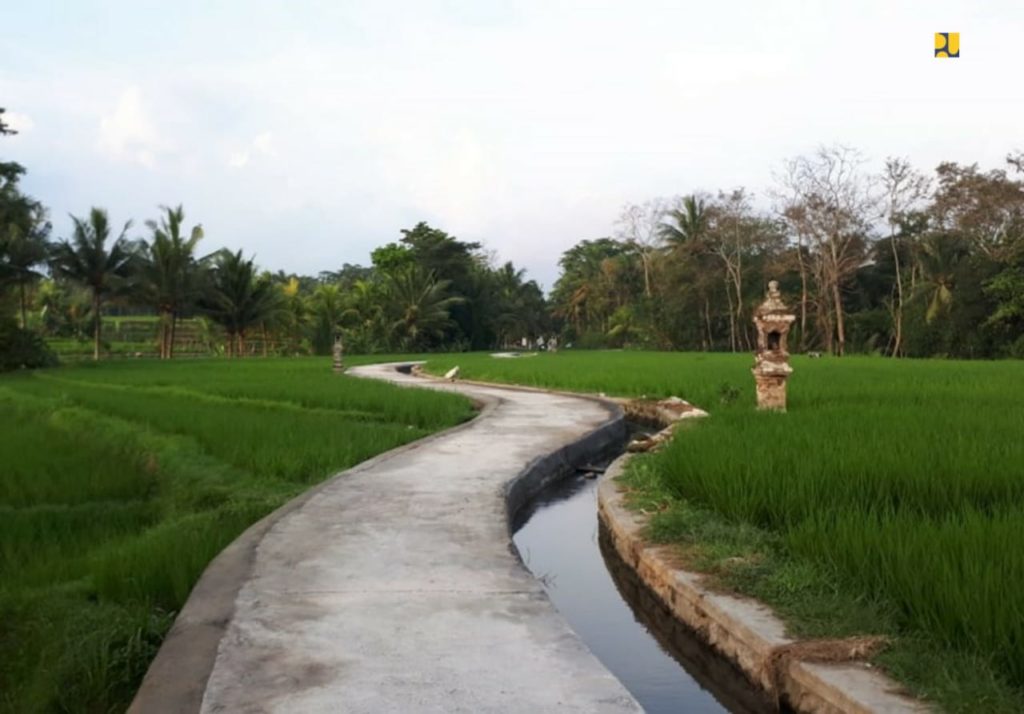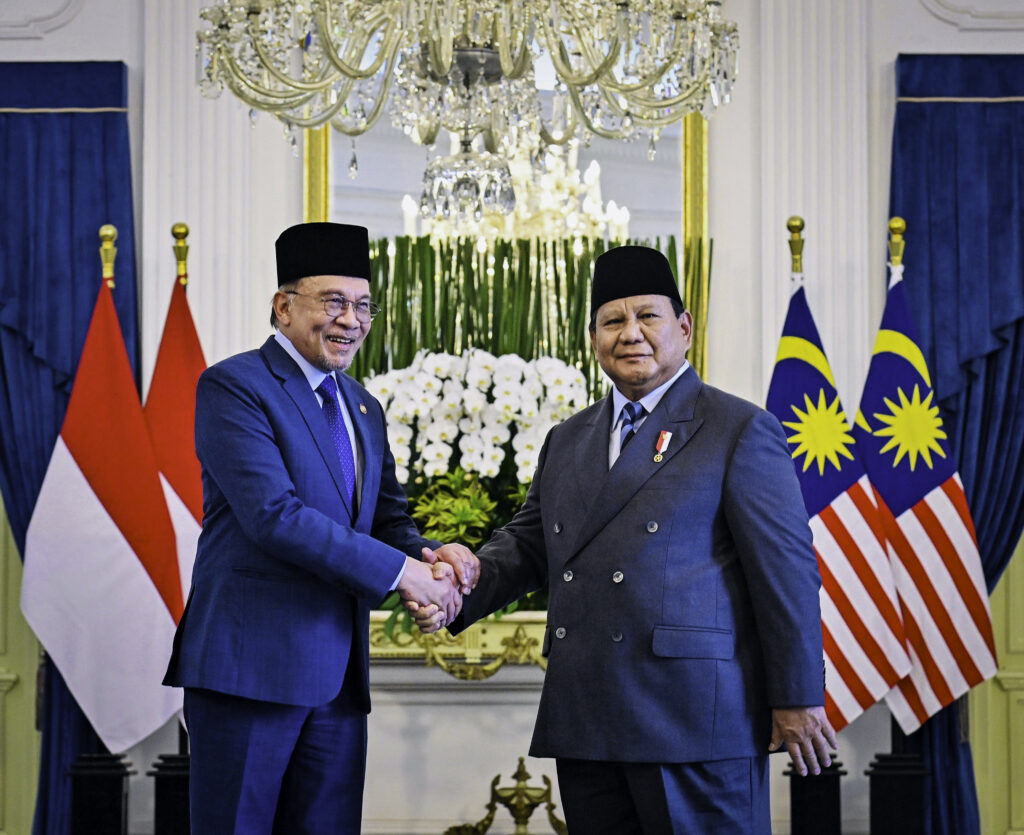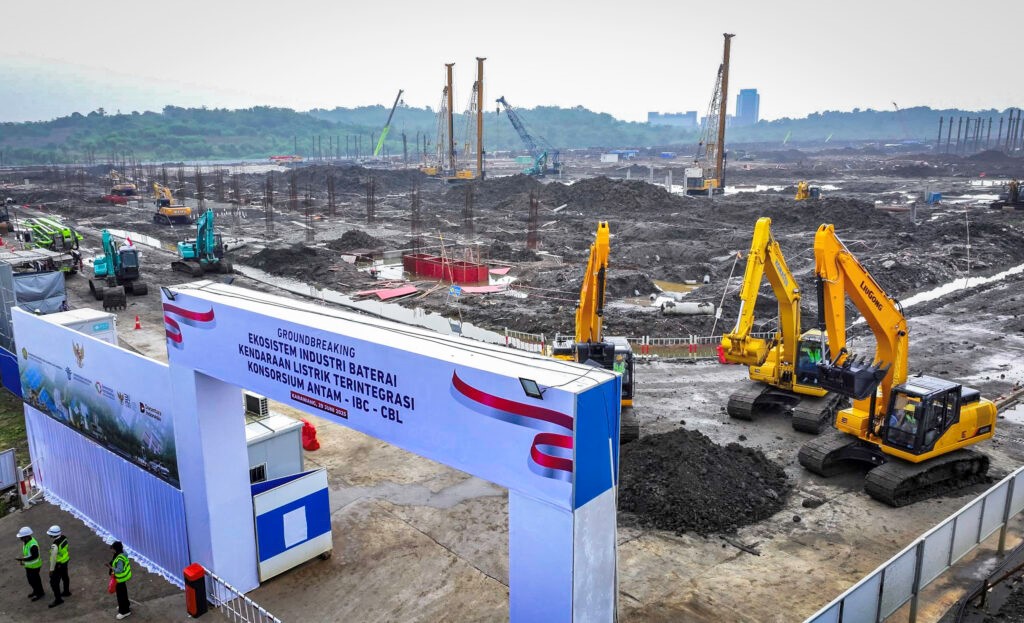Gov’t Speeds Up Labor-Intensive Program in 900 Subdistricts

One of the labor-intensive projects. (Photo by: Ministry of Public Works and Public Housing)
Ministry of Public Works and Public Housing has announced it has continued to accelerate Cash Labor-intensive Program distribution in order to reduce unemployment and maintain people’s purchasing power amid economic uncertainty during the COVID-19 pandemic.
In 2020, the budget for Labor-intensive Program reached Rp11.2 trillion which mainly used for infrastructure development to support the productivity of rural communities, such as improving small irrigation, environmental road, drinking water quality, and sanitation; establishing subsidized homes; and handling slums.
One of the community-based infrastructure development programs implementing this scheme is Regional Socio-Economic Infrastructure Development Program (PISEW).
This year, PISEW reached 900 districts with a budget allocation of Rp540 billion. The PISEW objectives are in accordance with the Decree of Minister of Public Works and Public Housing Number 167/KPTS/M/2020 on Location Determination and Assistance for Community-Based Infrastructure Activities for the 2020 Fiscal Year, issued on 5 March 2020.
Minister of Public Works and Public Housing Basuki Hadimuljono stated that the program was implemented through infrastructure development that involved the community/local residents as actors of development, especially small-scale infrastructure or simple work that does not require difficult technology as its main purpose is to maintain people’s purchasing power or distribute development money in rural areas.
“Every stage of the program implementation is carried out in accordance with the COVID-19 Protocol, such as maintaining physical distance, wearing masks, and avoiding crowds,” Basuki stated. Currently, the Government is disseminating information on PISEW to communities in preparation for its physical development.
Through this program, the potential for labor absorption in each location is 17 people with an implementation period of around 75 days, bringing the total potential for employment of the 2020 PISEW Program to 15,000 workers or 1,125,000 working days.
The realization of the PISEW includes building basic infrastructure in districts or rural areas such as improving the construction of environmental roads and small bridges, improving the quality of drinking water and sanitation as well as building supporting infrastructure for production as well as agricultural, livestock, fishery, and MSME products, so as to provide benefits in increasing production capacity of excellent commodity and local potential of the area.
Nationally, within a period of 4 years (2015-2019), PISEW has reached 2,564 districts with a total budget of Rp1.75 trillion. Pinang Raya Subdistrict of North Bengkulu Regency is one of the beneficiaries of the 2018 PISEW through the construction of a bridge connecting Bukit Harapan Village with Sumber Mulya Village. The infrastructure has benefited the surrounding villages due to the speed up in logistics transportation. (BKP Kementerian PUPR/EN)
Translated by: Fairuzzamani Inayatillah
Reviewed by: Yuyu Mulyani








